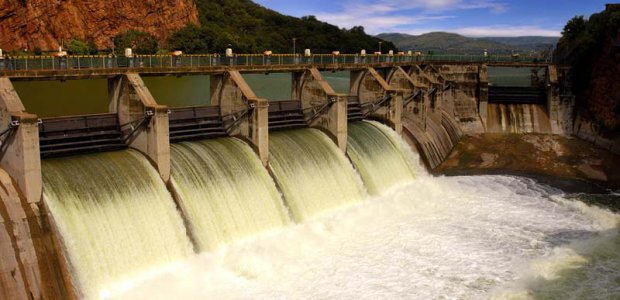Local energy authorities are heavily relying on hydropower station output, electricity export restrictions, activation of the demand response mechanism limiting industrial energy use during peak hours, as well as a new LNG delivery to the terminal on Revythoussa, an islet just off Athens, in the effort to safeguard the country’s energy adequacy level.
A main power utility PPC lignite-fired power station in northern Greece’s Florina region, ousted just days ago by the strains of the high energy demand, has returned to action and is now contributing to the grid. The unit, located in Amynteo, is one of four lignite-fired stations sidelined in recent weeks. Two of these have been temporarily closed for desulphurization maintenance work.
The aforemenioned factors have by no means resolved the energy crisis. Two nights ago, electricity demand in Greece reached 9,300 MW, the highest level recorded in five years.
Electricity export interruptions – imposed yesterday afternoon – to Albania, the Former Yugoslav Republic of Macedonia (Fyrom), Bulgaria and Turkey, contributed a further 150 MW to the country’s grid.
Steel and cement producers that activated the demand response mechanism yesterday afternoon, will allow a further 300 MW to be used by the grid over a 48-hour period. Likewise, Aluminum of Greece contributed 287 MW through the demand response mechanism. It enables major industrial enterprises to benefit from energy cost savings in exchange for shifting energy usage to off-peak hours whenever required by the operator.
PPC’s hydropower plants are taking on the bulk of the energy crisis challenge. These units can produce as much as 2,400 MW when operating at full capacity.
Any further lignite-fired power station technical setbacks need to be avoided to avert a further energy warning system rise to Level 3 Alert. It was lifted to Level 2 Alert just days ago. Should any lignite-fired power stations be sidelined, natural gas-fueled power stations will need to fill the gap, which would subsequently place a major strain on the LNG reserves at the Revythoussa terminal, as was the case a few days ago.
A 114,000-cubic meter LNG shipment from Algeria is being unloaded today at the Revythoussa facility, controlled by DESFA, the natural gas grid operator. It was preceded by a 140,000-cubic meter shipment two days earlier. Natural gas demand struck an all-time national record on Monday, reaching 290,000 MWh.
If power cuts to households and enterprises are needed, despite the reinforcements, then authorities will activate an automatic mechanism that would remove 250 MW, before continuing with further amounts, in order to stabilize the grid.
Fearing the political cost this would entail, the government wants to avoid such an outcome, as was made clear yesterday at an energy ministry meeting headed by energy minister Giorgos Stathakis.





